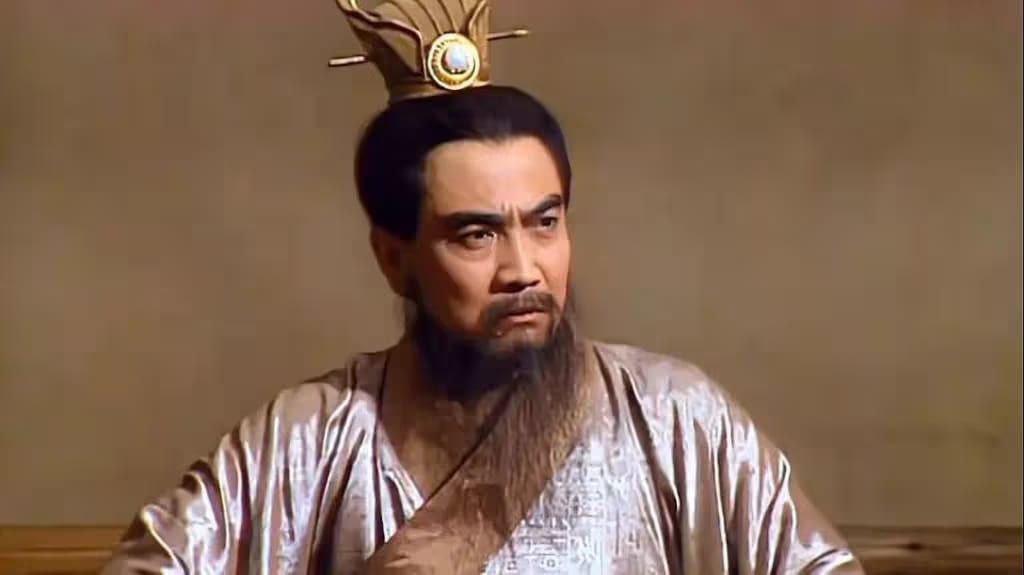Five Heroes of Three Kingdoms
Preface · How to evaluate Cao Cao (Part 2)

Let's hear the meaning of the phrase "time makes heroes". The "current situation" here specifically refers to the "troubled times" of the Three Kingdoms era. In a peaceful and prosperous age, people who rule the world are born. And in a troubled world, people will be born in the world.
In such a turbulent era at the end of the Eastern Han Dynasty, eunuchs and eunuchs fought for power, the two emperors Huan and Ling were incompetent, the society and economy were in decline, and the common people were in dire straits. People born in this era are unfortunate and lucky at the same time. It is precisely because of such conditions that people like Cao Cao have a place to use their abilities to display their talents.
Since the start of the melee between the Eighteenth Route princes against the warlord Dong, Cao Cao's power was very small, and he was not even considered a feudal town among the princes, but he could only temporarily attach himself to Yuan Shao. In the ensuing separatist drama, he also experienced the crisis that his hometown was about to be taken down (Chen Gong and others rebelled against Cao), he also experienced the classic battle of Guandu victory with less, and he also experienced underestimating the enemy to the point of defeating Sun Liu Lianjun was in Chibi. In these processes, the local separatist forces were gradually eliminated, and the territory continued to expand. Regardless of his personal ambitions and interests, it may be considered that "Cao Cao is doing one thing, that is, actively ending the warlord melee." For example, after Guandu conquered Wuhuan, the north was basically unified, which also stopped the war in the north, developed the social economy, and allowed the people to recuperate. In a sense, it was positive and driving force. Bright side. Cao Cao once said the following words to Emperor Xian of the Han Dynasty. These words are carefully considered and are true.
Assuming that there are no orphans in the country, it is not known how many people will be called emperors and how many people will be called kings.
Cao Cao has been in the name of supporting Han for a very long time. The most famous of these is "Serving the Son of Heaven to beg for disobedience", but in other people's mouths it has become "Holding the Son of Heaven to order the princes". In this matter, Cao Cao saw the opportunity and intercepted Hu Xiandi first. This is a banner in name, and it is to find a "strong basis" and "social appeal" for doing things in the future. Just like Xiong Xin, the grandson of Xiang Liang Li Chuhuai King in the Chu and Han Dynasties, in fact, the newly established king does not have any power, but the invisible appeal he possesses is extremely far-reaching. So that later Xiang Yu assassinated Xiong Xin, but Liu Bang took advantage of it and counted it as a crime, making him unpopular.
Pull away, take it back.
Cao Cao once said when he was young that he didn't want to be a high official in his life, he just wanted to be a county guard. If you can serve the country against thieves, and the tombstone after death is engraved with the words "Tomb of Cao Cao, General of the Han Dynasty who conquered the West", then I will be satisfied. It shows that he once devoted himself to Han. Later, they often said such words as "the tired leaves receive kindness, and they don't dare to take care of their lives", "the ashes do their best to repay the kindness", expressing their loyalty to the big man. Until later, Sikong, who was ranked among the three lords, and when the prime minister monopolized the power of the world, "a minister is extremely precious, and his expectations have been exceeded." There is also the famous "Rangxian Self-Ming Benzhi Ling", which reflects his true feelings of loyalty to the Han before he was granted the title of Duke.
These words are too much, so you have to do it. The advantage is that it can stabilize people's hearts and raise the banner of recruiting talents; the disadvantage is that if one day you don't plan to betray the Han and want to betray the Han, these words and speeches will become obstacles and restrictions.
Some people say that Cao Cao is too addicted to being emperor, so he just doesn't claim to be emperor. This is true. Later, after he became an "extreme minister", he was only one step away from the emperor. He doesn't need that title. But he thought about it, too, very seriously. After comprehensive consideration, I still felt that it was not possible, so I said something like "If the destiny is my destiny, I will be King Wen of Zhou". What's the meaning? Just let my children and grandchildren complete the imperial career, and I will be wronged. So in his later years, he paid close attention to paving the way and cleared all kinds of obstacles for his son. When Cao Pi ascended the throne, he invited Emperor Xian of the Han Dynasty down within a few months.
He is a typical doer, not fond of fame.
So first of all, Cao Cao is a very resourceful politician.
Cao Cao spent most of his life in the army in the army. He has been reading extensively since he was a child, and he is familiar with the art of war (annotation for "Sun Tzu's Art of War"). He is familiar with the trend of war and can handle wars with ease. Whether the war is won or lost, it is greatly integrated into his strategic thinking.
Cao Cao paid great attention to strengthening the army, garrisoning the fields, effectively combining the military and the economy, and attaching great importance to military power and political power, and constantly consolidating military and political power.
Don't fight unprepared battles, of course, there are also people who are too hotheaded to use troops indiscriminately. However, he knows himself and the enemy in the overall situation, so he wins more and loses less. In the event of a major failure (such as the Battle of Chibi), he can quickly clean up the mess, and often criticize himself, waiting for a comeback.
Therefore, Cao Cao is a military strategist who is very good at using troops.
"Qingqing Zijin, caress my heart. But for the sake of the king, I have pondered it so far." ...
"Although the tortoise lives long, it still has its own time. Soaring a snake rides the mist, and it turns into ashes in the end." ...
"Looking at Jieshi in the east, you can see the sea. The water is so light, and the mountains and islands stand tall."...
These popular verses are all written by Cao Cao. Cao Cao inherited the characteristics of Han Yuefu poems and opened up a generation of poetic styles. He is very good at reading, and even on the way to the expedition, he can't put it down in his tent, which has created his poetic and literary style that is very representative of Jian'an's strength. Cao Zhi's "Emperor Wudi" said that he "both governed the general government, and also read the scholars, bowed to the ode, and was played by the piano." Liu Xie also said in "Wen Xin Diao Long" that Cao Cao "observed the literature at the time, elegant and generous. , Good is due to the chaos of the world, the decline of customs and grievances, and the decline of ambition and long writing, so the outline is full of energy." Cao Cao not only has a deep knowledge of Fu, but also likes instrumental music. He is the founder and leader of Jian'an Literati Group. Of great historical significance, he is the representative of Jian'an character.
He is good at strategizing, suspicious and bloodthirsty, but out of the maximization of political interests, he can distinguish the priorities of things.
He came from a bad family background (father Cao Song was raised by an eunuch) but had a relatively prominent status (his father bought an official to become a captain), but he didn't use it as a ladder to rise to the top. He doesn't protect the eunuchs, but he doesn't suggest killing them all (contrary to Yuan Shao's thinking)
He is tolerant of all rivers, and people like Zhang Xiu who have the hatred of killing can tolerate his subordinates. He brought Chen Lin, who had been scolded by his ancestors for three generations, into the shogunate; Yang Xiu, the son of Wei Yang Biao).
In the troubled times, he ignores people's morality for the time being, "Only talents", he is thirsty for talents, and hopes that the talents of the world will be used by me.
He eats and dresses all his life in a simple manner, not being gorgeous, and his children are not bound by family status when they marry.
He is very suspicious, careful and prudent in doing things; but he is prone to pride and complacency, and his impetuous heart often emerges.
In his later years, he became a duke, a king, and established a country, but he was "an extremely human minister" but he just didn't ascend the throne as emperor.
He was very troubled by the succession of his heirs, and he did not hesitate to kill famous officials (such as Cui Yan) in the process to pave the way.
He is very sentimental, and whenever he encounters a major event or a historic site, he would sigh and write a poem.
He was once the prime minister of the Han Dynasty, and also the Emperor Wu of Wei who was later posthumously named. He's a scary guy and a warm guy at the same time. He is an open-minded person, but also a suspicious person. It was unfortunate and fortunate that he was born in that era. He let us remember him, and he will remain in the long river of history forever.
This is Cao Cao. Do you have a lot to say about him? Next, I will begin to formally describe Cao Cao's life. Before that, I want to briefly talk about the background at that time, that is, the background of the end of the Eastern Han Dynasty. stay tuned.
About the Creator
Enjoyed the story? Support the Creator.
Subscribe for free to receive all their stories in your feed. You could also pledge your support or give them a one-off tip, letting them know you appreciate their work.





Comments
There are no comments for this story
Be the first to respond and start the conversation.